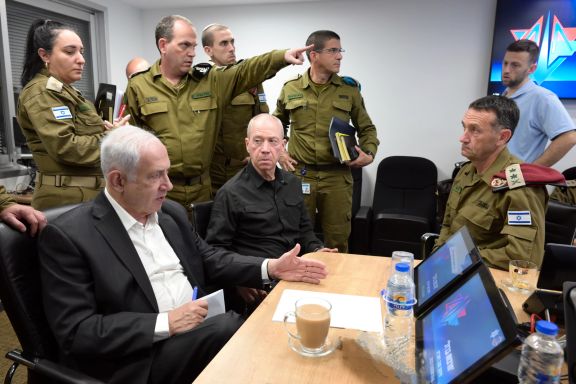Energy minister Eli Cohen, a former foreign minister, said on Friday Israel was "committed to preventing the Iranians from acquiring nuclear weapons, and therefore, all options are on the table, including attacking nuclear facilities".
He made the remarks in an interview with Israeli news website Walla News three days after a CNN report said Israeli officials, including Prime Minister Benjamin Netanyahu, had assured the US that any retaliatory strike on Iran would be confined to military targets.
A Tuesday report by The New York Times citing sources confirmed that nuclear enrichment sites are not among Israel's targets
"Even if Israel avoids Iran’s nuclear enrichment and oil sites, it could still hit a wide array of military targets," the American daily wrote. "They include missile and drone launchers, missile and drone storage sites, missile and drone factories, as well as military bases and major government buildings."
Citing two Israeli officials, the report said: "Israel could also strike nuclear research laboratories, even if it avoids Iran’s subterranean nuclear enrichment sites."
In his Friday interview, Cohen said, "There is no military facility or infrastructure or person in Iran who is immune from an Israeli attack in response to Iranian aggression."
"We proved that we know how to go anywhere, with a large variety of armaments. By the way, we have not yet shown even 10% of our unprecedented armament and intelligence capabilities," he added.
Tensions between Israel and Iran have mounted since October 1, when Iran launched 181 ballistic missiles towards Israel in response to the Jewish state's killing of the leader of Hezbollah Hassan Nasrallah in Beirut and Hamas political leader Ismail Haniyeh in Tehran.
Israel’s air defenses intercepted most of the missiles, but several struck military and civilian targets, causing minor damage. This convinced the Pentagon to deploy a THAAD missile defense battery to Israel this week for protection against Iran's possible retaliatory attack.
'Chance for de-escalation'
While it is not yet clear when the Israeli strike on Iran will take place, US President Joe Biden told reporters on Friday he has an understanding of how and when Israel was going to retaliate. He declined to elaborate, but also said there was a chance for a ceasefire.
"There's an opportunity in my view and my colleagues agree that we can probably deal with Israel and Iran in a way that ends the conflict for a while. That ends the conflict, in other words, that stops the back and forth," Biden said.
Biden added that he believed there was a possibility of achieving calm in Lebanon but that such efforts would be harder in Gaza.
Earlier on Thursday, Biden referred to the Israeli killing of Hamas leader Yahya Sinwar, calling it an opportunity to free hostages held by the militant group and end the year-long Gaza war.
Yahya Sinwar, the mastermind behind the October 7 attack, was believed by US and Israeli officials to be the main obstacle to reaching a hostage deal.
While Biden has long pushed for a ceasefire deal to secure the release of Israeli hostages, an imminent Israeli strike on Iran could further enflame the region, denying Biden the truce he would like to add to his legacy as his presidency draws to a close.








